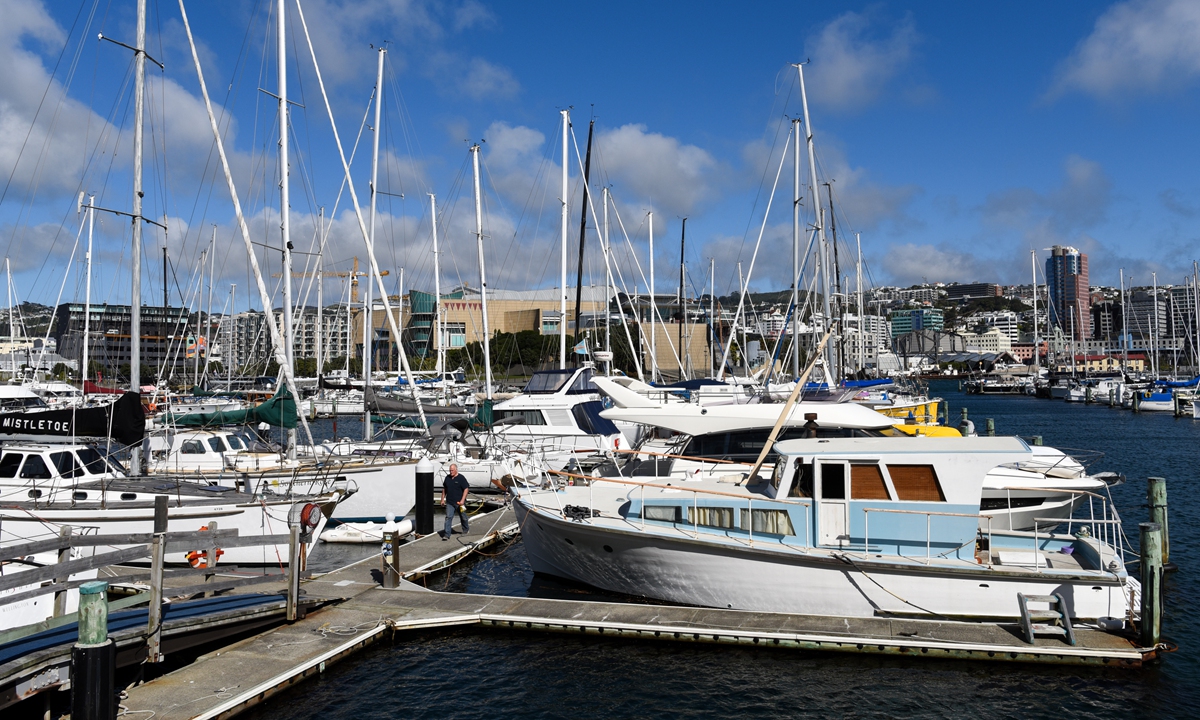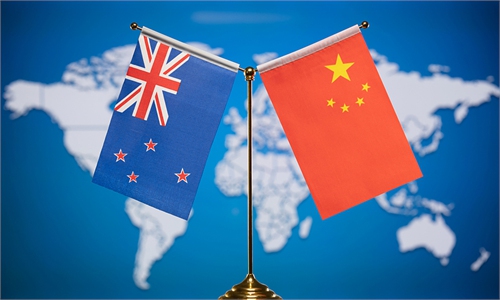Kiwis make wise moves with China trade deal as Aussies watch

A man walks along a wharf in Wellington, capital of New Zealand, on September 22, 2020. Photo: Xinhua
With trade protectionism rising and the COVID-19 pandemic spreading, China and New Zealand have expressed their firm support for multilateralism and free trade.The upgrade of the China-New Zealand FTA agreement signed in 2008 is rich in content and carries amicable reciprocity measures. New Zealand has further improved its level of openness in areas such as engineering services and tourism. It is one of the few Western countries to open its doors to China's construction firms. The current static infrastructure development of New Zealand will witness the charm of China's infrastructure construction company in a very short time. China's exporters now also enjoy duty-free treatment for all goods exported to New Zealand. In return, 97 percent of New Zealand's wood products and other goods exported to China will enjoy duty-free treatment.
The pact is expected to stimulate China's investment in New Zealand. Previously, Chinese investment in New Zealand was set at NZ$10 million ($7.18 million) by government review. Now, New Zealand has raised this threshold of Chinese government investment and non-government investment to NZ$100 million and NZ$200 million, respectively.
This is in sharp comparison with its neighbor, Australia, who set the threshold at zero in the most updated announcement. Data shows that China's total investment in New Zealand reached NZ$520 million in 2019, making China the second largest source of New Zealand's foreign investment. This is likely to surge once the pact is enacted.
New Zealand's trading relations with China have strengthened and intensified since 2008. One of the concerns expressed during previous FTA negotiations regarded power relations - Would the bigger partner dominate the small, leaving it no way out? This new upgrade will see mutual trust and bilateral trade upgrade to new levels for at least another 10 years.
Compared with certain Western countries, New Zealand has a positive attitude toward Chinese investment. In August 2019, New Zealand's official report praised China's diverse investment in New Zealand, which promoted upgrading and developing New Zealand's primary products and food and beverage industries, as well as tourism, infrastructure, construction and other industries. Chinese capital has played a positive role in supporting New Zealand's North South regional balance, scientific and technological innovation, improving market access and creating high value employment opportunities.
Sure, New Zealand is a member of the intelligence-sharing Five Eyes alliance, the same as Australia. But in contrast with the general references of Australia and New Zealand combined, Wellington is more independent, objective and practical in terms of dealing with its divergences with China.
In contrast to the hysterical block of Huawei's 5G of US, Australia and other countries, New Zealand has always maintained a sober position and refused to follow suit. This stance is rooted from historical tradition.
New Zealand has the reputation of being the "black sheep." In 1985, New Zealand's Labour government repudiated the USS Buchanan entry request when the US did not confirm its warship's nuclear capability. Instead, the Buchanan ended up entering Sydney Harbour. Contrary to Australia's bitter and sweet relations with Pacific nations, New Zealand shares a more cordial relationship with them thanks to its humble and egalitarian approach with these nations.
Trade and business seems to be a less sensitive topic in New Zealand than in other Western countries where political debates about China are always entangled with trade and business. In this sense, New Zealand has definitely seized opportunities that Australia has failed. Whether this will set an example for other Western countries is yet to be seen. However, one thing is sure: Consumers in both China and New Zealand will be able to purchase goods from each other more conveniently.
It is reasonable to believe that for Chinese consumers, more agricultural and animal husbandry products from New Zealand will be available in our supermarkets and e-commerce platforms. Also, more Chinese tourists will have the chance to visit New Zealand as more visa quotas will be released from New Zealand's side.
The author is an associate researcher at the School of International Relations, Sichuan University, and also a researcher at the Pacific Research Center of Beijing Foreign Studies University. opinion@globaltimes.com.cn

